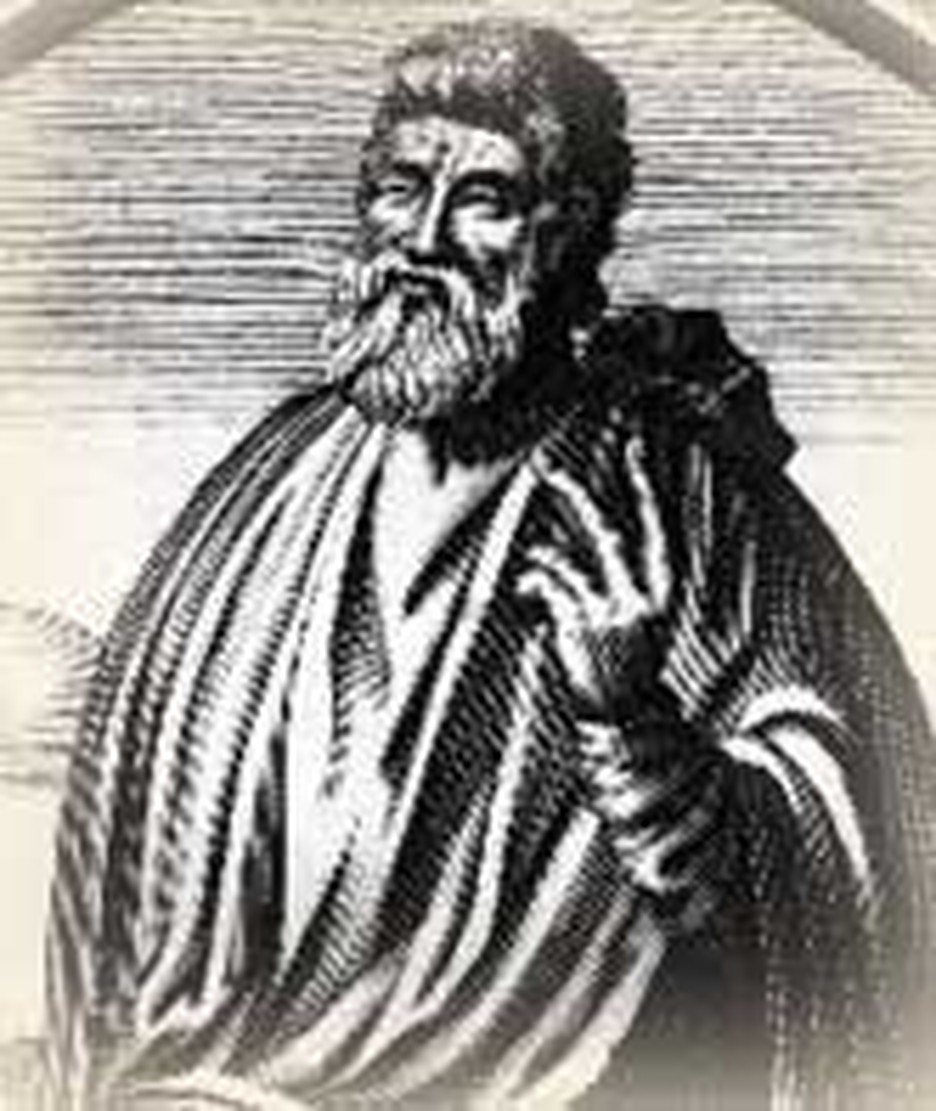
Let's start by admitting that not too many people get turned on by the study of philosophy. But it is the philosophers who shape much of the ideas of the world in which we live. Their influence inevitably seeps quietly down into the culture with practical effects on the way we view our world. Christians have always had to meet head-on the philosophical outlooks prevailing in any given time and society.
The first in the great long line of Christian philosophers was Justin. But he was not just an egghead academic. He addressed his arguments to the mighty Roman emperor himself, and he ended up giving his life for his courageous defense of the faith.
The Restless Search
Flavius Justinus was born in the Roman colony of Neapolis in Samaria,
near where Jesus had talked to the Samaritan woman by the well (John 4).
Justin would thirst after truth and righteousness and would finally drink
of the water Jesus offered. He was the first Christian philosopher and
theologian after the apostles, explaining Christianity in terms familiar
to the educated Greeks and Romans of the second century after Christ.
Educated But Empty
The Romans established the colony of Neapolis (modern Nablus) after the
destruction of Jerusalem in 70 AD Justin's father apparently was part
of the colonial administration. As a well-born Roman, Justin received
a classical education in Greek and Latin. Searching for truth, he studied
various popular philosophies. But none of them filled his hungry heart.
The Stoics had no concern if God cared for man or not. The Peripatetics,
who taught Aristotelian philosophy, were more interested in collecting
their fees than in teaching truth. The Pythagoreans required intensive
study of music, arithmetic, and geometry. Finding nothing in these philosophies,
Justin became a Platonist, admiring Socrates' and Plato's notions of the
invisible world.
Thanks to a Nameless Old Man
Around the year 132 while walking by the sea, quietly contemplating the
Platonic ideas, Justin met an old man. The old man's name has been lost
to history but his faithful witness has blessed the church down to this
day. The old man talked with Justin and patiently made him aware of weaknesses
in Plato's thinking Justin had not seen before. He told Justin of prophets
more ancient than the Greek philosophers who told the truth about God
and foretold the coming of Christ.
Justin continued as a teacher of philosophy, but he now explained Christianity as the true philosophy. He believed that all truth was God's truth. Borrowing from John's treatment of the Word (Logos in Greek) in his gospel, Justin taught that any truth in the Greek or pagan philosophies was the Word or Logos reaching out to sinful humanity. He believed Plato's God was the God of the Bible and Socrates was a Christian before Christ, just as Abraham was. Moses and the Old Testament writings were older than the Greek philosophies, and any truth the Greeks had was borrowed from the Jewish prophets.
A Voice for Oppressed Believers
Justin ardently defended the Christian faith against pagans, Jews, and
erring Christians. He taught in Rome at the house of Martinus on the Via
Tiburtine and wrote works which equipped Christians for generations to
come. His Apology , written about 150 and addressed to the emperor Antoninus
Pius, was an appeal for justice and liberty on behalf of the Christians.
Christianity was a persecuted minority in Justin's day, and his Apology
showed the reasonableness of Christian truth. After refuting baseless
accusations against Christians, such as that they had cannibalistic rituals
and engaged in gross immorality, Justin contrasted the moral power of
Christ's teaching with the irrational fables of paganism. Justin appealed
to the emperor: if these things seem to you to be reasonable and true,
honor them; but if they seem nonsensical, despise them as nonsense, and
do not decree death against them who have done no wrong...For we forewarn
you, that you shall not escape the coming judgment of God...
Holding the Line, Paying the Price
Not only did Justin teach Christianity as the ultimate truth and write
in defense of the Christian faith, he also defended Christianity in public
discussions. Two men he publicly debated in Rome were the heretic Marcion
and the Cynic philosopher Crescens. The fourth century historian Eusebius
suggested it was a plot by Crescens which brought Justin and six of his
students to the attention of the Roman prefect Rusticus probably around
the year 165. When these Christian believers refused to sacrifice to the
Roman gods as demanded, they were condemned, scourged, and beheaded. Standing
a firm witness to Christian truth even in death, Justin gained the name
"Martyr" by which he continues to be known to this day.
Justin's First Apology is available as this web site as part of Christian History Institute's Pocket Classics.
One philosophy alone is safe and profitable |







